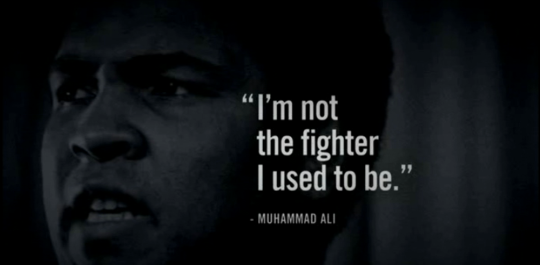
The world today is fast paced. Most people have to wake up early to get to their places of work on time. Others who work from the comfort of their homes still need to meet up with deadlines, and finish up projects well. A good percentage of working people do whatever they are doing with keen interest because they have the passion for it or because they have overtime developed a passion for what they do.
This is a guest post by Clifford Uroh a Sports and Exercise Psychology Expert.
All jobs have their own demands which varies from field to field, position to position and location to location. The demands are mostly in the form of certain objectives to be fulfilled. These objectives if well-defined and understood between employer and employee can boost the motivation to work and accomplish more tasks. In some jobs, the objectives may not have been clearly stated thereby demanding from the employee to create objectives for himself in order to achieve particular organizational needs. Whether the job position or the project have objectives to be achieved, employees can become stressed overtime as a result of too much demands and less result or good result and little or no encouragement from their bosses. There have been cases of employees experiencing burn-out due to high job demand and little resources to cope with work stress. These and many more is counter-productive for employees and in the long run for any organization.

Employees can provide self-help for themselves if they follow the goal setting psychological strategy. Goal setting is simply a blue print or framework, or a plan for achieving success as an individual or a member of a team. Goals can be achieved within a particular organization or group, depending on the strategies employed. Goal setting is a psychological skill that can be used to increase the commitment of an individual to group goals or to personal goals. When we talk of goal setting we are simply talking of all the plans you should make in order to achieve a personal target or a target set by you and others within a group.
The plans that make up your goal would determine how you go about achieving that goal. A good plan would definitely realise a good goal achievement. The plan for achieving your goal is referred to as the goal process. Everything that is done to meet that deadline, to complete that task at the end of the week or month.
How to set a good goal or the strategies needed for goal setting. Goals have to be SMARTER. A good goal should make you happy after achieving it. Goals that are achieved systematically leave the achiever in high positive emotion. If you have to achieve a task within a year what would you do? You would need to make a plan in order to achieve it within a year. The length of time determines what category the goal would be considered under. Such a goal as above is a long term goal. Now you need to sit down to take note of the short and medium term goals that need to be realized in order to achieve the long term goal. You might think that it is tasking, but until you have done it and seen the success behind it you would never know. Make a plan to achieve the short term goal by setting objectives to be achieved daily.
Short term goals can be those that need to be achieved weekly. When you set objectives to be achieved each day it makes it easier for your work to be carried out. It is encouraging to have a book on goals you have set and have achieved and any other detail round them. You can write down the objectives that you want to achieve on a small piece of paper putting time targets for each objective. When you achieve an objective, strike it out. Do this until you are done for the day. If you have tasks that are left undone, add them up to those of the next day. If you accomplished the targets for the day it gives you a sense of confidence to achieve targets for the next day. Objectives or goals achieved each day encourages you to develop other strategies for achieving even more goals the next day. They help you to be committed to the task. Remember that you haven’t achieved your long term goal yet, but a sense of accomplishment in fulfilling present short term goals helps you to continue each day until you achieve your long term goal.

The word SMARTER was mentioned in the last paragraph. Goals have got to be planned in a smart way in order for them to be realizable. It’s a simple rule that would guide your daily goal formation.
S – means Specific, your goals have to be specific, and they have to address a particular issue. There are no general goals when it comes to goal setting. A specific goal for an individual could be to visit twenty universities in a particular country. It should not be – to visit universities. It has to be detailed or else there would be no direction. Achievement takes place in a goal directed fashion. Goal setting directs action.
M – Means that the goals have to be measurable, so let’s say you have to visit those 20 universities in ten months. It means that each university has to be visited within two weeks.
A – Means that such goals have to be achievable. Can you visit twenty universities in forty weeks? Yes you can, especially because you know that you have two weeks to cover one. This detail puts you on your toes.
R – means realistic. The goal has to be realistic. If the universities are in twenty different countries, comparing it with your time and available resources it may be difficult. If they are situated in one country, then it may highly be possible. The high possibility should be such that the goal is also challenging. If the goal is challenging, then it is a goal that can motivate and keep you asking for more.
T – Means time bound. Our goal of visiting twenty universities in ten months has a time factor. We know that we have to be in one university within two weeks.
E – Exciting. The goal should be exciting to achieve. It should not be dry. It should have the element of challenge and excitement in order to motivate you.
R – Means recorded. Goals and their objectives should be recorded. After visiting one university, strike the name out on your piece of paper. This action gives you a sense of accomplishment.
What about group goals, how can we go about accomplishing them? The same way with individual or personal goals but with only a slight variation in the definition of the goal. In the defining the goal, all members of the group must contribute to specifying the goal. Let’s take the goal of visiting twenty universities. All members have to define the goal in their own terms after which a synthesized definition will be accepted. Group goal is all about collective effort, each person would have tasks to accomplish each day.
Finally, it is important that you appraise your goals regularly to find out if it is directing you towards success. This can be done every 6-8 weeks. Assess your goals each week to find out if you are really achieving them. Goal setting is a plan of action, a framework, a blue print that motivates you towards achieving goals. When seemingly difficult goals are broken down and then attained in a systematic way, they improve your motivation, commitment and self-confidence. These three things are needed for you to end your workday and workweek well.
This is a guest post by Clifford Uroh a Sports and Exercise Psychology Expert.
